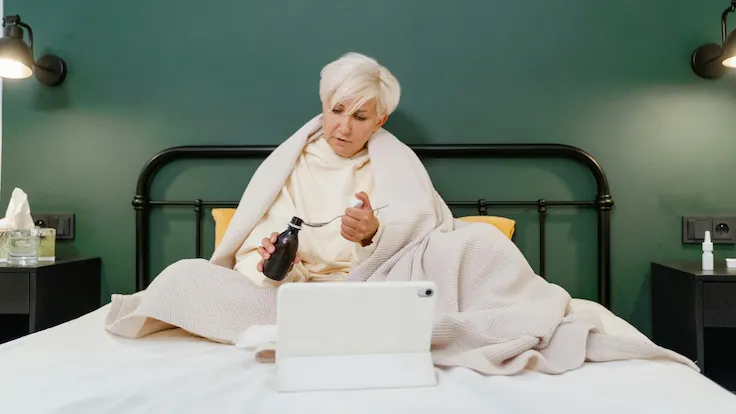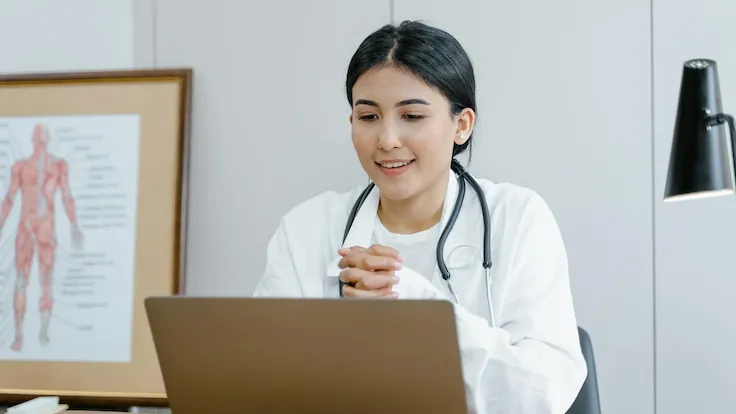Recover from Chlamydia with Dimer Health once you leave the hospital
Chlamydia is a sexually transmitted infection caused by the bacteria Neisseria gonorrhoeae, which can affect the urethra, cervix, rectum, and throat. Post-acute care is important for gonorrhea to ensure that the infection is fully treated and to prevent complications such as infertility, ectopic pregnancy, and disseminated gonococcal infection.
Get a personalized care plan and 24x7 clinical support until you fully recover:
Schedule your video call with one of our experienced providers
We will create a personalized core plan and set follow up appointments as needed
You will have 24x7 support for any question via phone, text or web app
We accept most insurances and currently available in New Jersey and New York
How it works
What is Chlamydia
Chlamydia is a common sexually transmitted infection (STI) caused by the bacterium Chlamydia trachomatis. It can affect anyone who is sexually active, both men and women, and can be transmitted during vaginal, anal, or oral sex. It can also be passed from an infected mother to her baby during childbirth.
The infection is particularly notable because it often does not cause any symptoms at first. This means that many people who have chlamydia may not know they are infected and can unknowingly spread the infection to others. When symptoms do occur, they can include:
- For women: abnormal vaginal discharge, burning sensation when urinating, pain during intercourse, abdominal pain, or bleeding between periods.
- For men: discharge from the penis, burning sensation when urinating, pain and swelling in one or both testicles.
If left untreated, chlamydia can lead to serious health problems. In women, it can cause pelvic inflammatory disease (PID), which can lead to chronic pain and infertility. In men, it can cause epididymitis, which can also affect fertility.
The good news is that chlamydia is easy to diagnose with a simple test and can be effectively treated with antibiotics. It’s important for sexually active individuals to get screened regularly for chlamydia and other STIs, use protection such as condoms during sex, and have open discussions with partners about STIs and testing.
Please call or book an appointment with us if you think you have Chlamydia or are recovering from it
Chlamydia Recovery Tips
Recovering from Chlamydia treatment after a hospital stay involves several important steps to ensure a full return to health and to prevent the spread of the infection to others. Here are some tips for recovery:
Taking these steps seriously helps ensure a smooth recovery and reduces the risk of complications or recurrence of the infection.
- Complete the Course of Antibiotics: It’s crucial to take all the prescribed antibiotics, even if symptoms disappear, to ensure the infection is fully cleared. Not completing the treatment can lead to the infection returning or becoming resistant to the medication.
- Abstain from Sexual Activity: Avoid all sexual activities until you and any affected partners have completed the treatment and are cleared by a doctor. This prevents the spread of the infection and reinfection.
- Follow-Up Testing: Schedule a follow-up test after completing treatment, as recommended by your healthcare provider. This is usually done to make sure the infection is completely gone.
- Inform Sexual Partners: Notify all recent sexual partners so they can get tested and treated if necessary. This helps prevent the spread of the infection and its potential complications.
- Practice Safe Sex: Once cleared to resume sexual activity, use condoms or dental dams to reduce the risk of contracting or spreading chlamydia again.
- Stay Hydrated and Rest: Ensure you drink plenty of fluids and get enough rest to help your body recover.
- Attend All Follow-Up Appointments: Keep any scheduled appointments with your healthcare provider to monitor your recovery and address any concerns.
Don't navigate your recovery journey alone.
Let us be there for you every step of the way.


